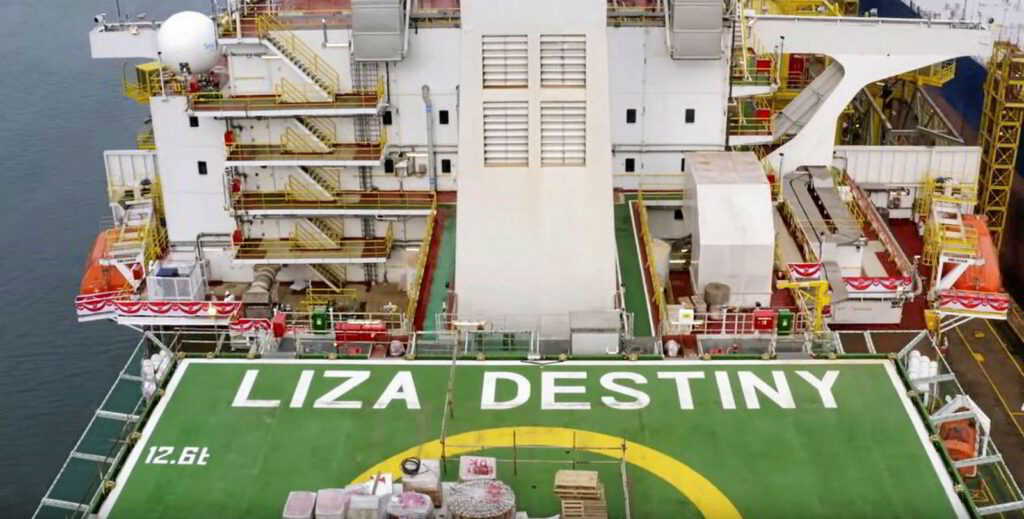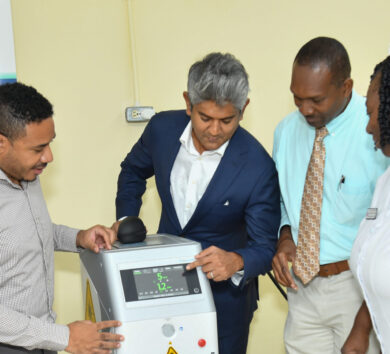
First case in the Caribbean to challenge fossil fuel production on climate and human rights grounds

The Guyanese government has been taken to court by two of its nationals, seeking to end ExxonMobil and other large oil firms offshore drilling in the South American/Caribbean territory.
The case, brought by 21-year-old Quadad de Freitas, an indigenous tour guide from the Rupununi region, and Dr Troy Thomas, a university lecturer and former president of the anti-corruption organisation Transparency Institute Guyana, represents a first in the Caribbean to challenge fossil fuel production on climate and human rights grounds.
According to the Guardian, the plaintiffs are claiming that Guyana’s approval of oil exploration licences violates the government’s legal duty to protect their right and the right of future generations to a healthy environment. Attorney, Melinda Janki, who is representing the claimants in court, described the civil proceedings as “a classic public interest case”.
Questions around whether oil production will affect climate and human rights
The attorney pointed out that, in 2001-02, he lobbied the Guyanese government very hard to put the right to a healthy environment in the constitution.
According to Janki, “it is in the interests of everyone to know what the law means, whether this oil production amounts to a violation of the right to a healthy environment. It’s then going to be up to the government to decide what actions to take”.
He asserted that Guyana was extremely vulnerable to climate change, arguing that the capital of Georgetown, lies below sea level with fishing being the primary livelihood of many. Last year, the United Nations Human Rights Committee asked the Guyanese authorities to respond to concerns that large-scale oil extraction significantly increases greenhouse gas emissions and adversely affects the most vulnerable groups.

Janki reported that there had been great pressure on Guyana to produce oil alongside a narrative that it would bring the country great wealth, “which is not borne out by the facts” citing the possible great disparity between rich and poor, massive environmental destruction and serious human rights abuse.
Oil has proved to be politically explosive in Guyana
The discovery of oil and subsequent production-sharing agreements with some of the world’s largest fossil fuel firms have proved politically explosive in Guyana, where about two-fifths of the population live below the poverty line of US$5.50 a day. The multibillion-dollar Stabroek exploration block off the coast of Guyana is a joint-venture between the oil firms ExxonMobil, Hess Corporation and a subsidiary of the China National Offshore Oil Company.
ExxonMobil estimates at least eight billion barrels of crude oil lie under the sea in Guyana, as well as trillions of cubic feet in natural gas. The block is ExxonMobil’s largest oil development outside of the US Permian basin.
The company began producing oil from the first deep-water project stage, called Liza-1, in late 2019 and expects to start Liza-2 in early 2022. ExxonMobil has approved investment in a third project, Payara, last year and is eyeing up more for the future.
The Guardian reported that Guyanese campaigners had previously challenged the government’s approval of drilling licenses on the grounds that only one of the joint-venture partners had an environmental permit. However, the judge ruled against the campaigners and that case is at Guyana’s court of appeal.

A second case challenging the length of the environmental permits granted for the first two exploration projects was successful. These will no longer expire in 2040 but in 2021, so ExxonMobil will have to reapply for a permit in the next month, according to the Guardian.
Campaigners want the court to declare that the government’s constitutional duties require it to stop authorizing activities that would contribute significantly to climate change, ocean acidification and/or sea level rise. They say 92 million tonnes of greenhouse gases will be emitted directly during the operation of the first three projects alone and many more when the extracted fuels are burned.
Despite pledging not to fund fossil fuel extraction directly, the World Bank has long facilitated Guyana’s entry into the world of oil exports. It helped the country draft petroleum legislation in the 1980s – well before the discovery of any reserves – and more recently paid for those laws to be rewritten by a legal firm that worked regularly for ExxonMobil.







Comments